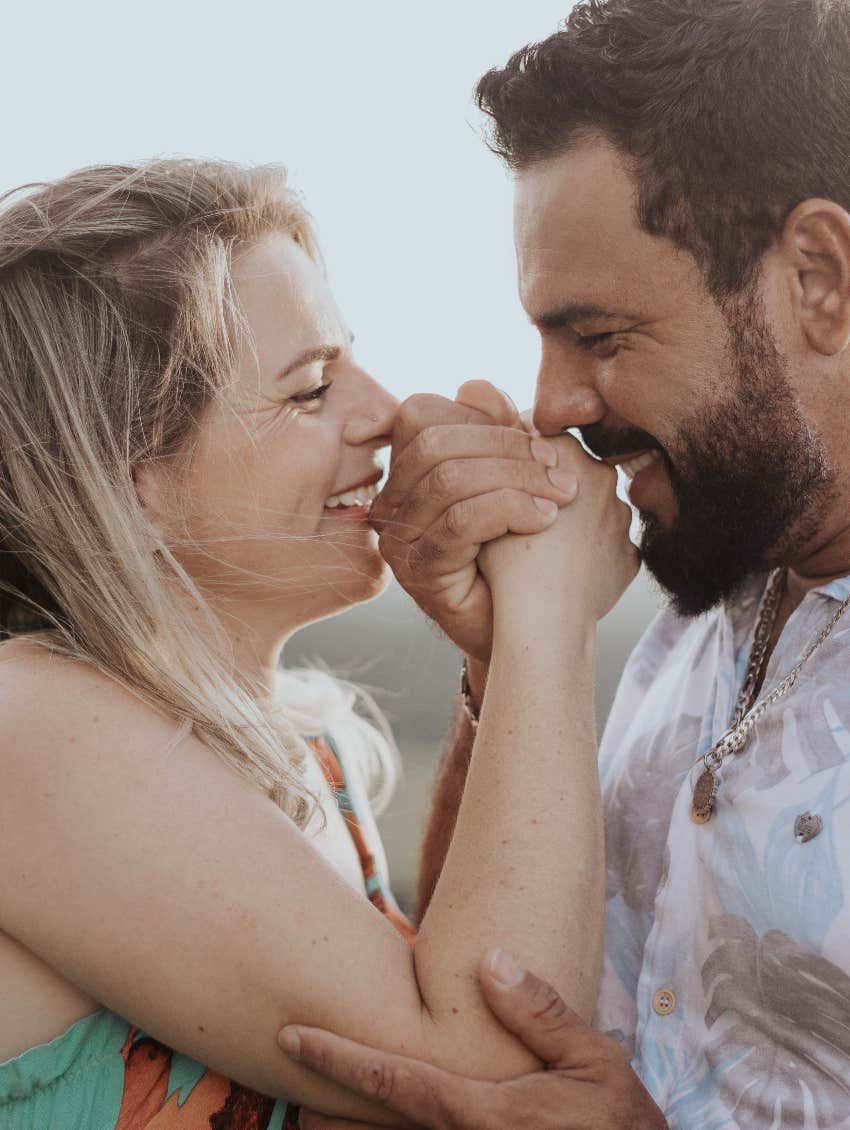If You Can Answer 'Yes' To These 5 Questions, You're In The Right Relationship
Is your relationship built to last?
 fizkes / Shutterstock
fizkes / Shutterstock Clinical psychologist John Gottman found, in a now-famous 2002 longitudinal study aimed at predicting when a couple will divorce, that contempt is a common by-product of a lack of relationship skills. He also found that contempt is the strongest predictor that a couple will divorce.
As a relationship expert with a Ph.D. in clinical psychology, I've heard many concerns expressed by exasperated clients, who are often evaluating whether they are in the "right relationship" with a partner. But you don't need to wonder any longer.
Here are 5 questions to ask yourself to tell if you're in the right relationship.
1. Can you each manage your anger sufficiently to talk about a difficult problem, while maintaining care toward each other?
While it's easy to become overwhelmed by emotions when in the midst of an argument or disagreement, the right relationship won't leave you feeling poorly about yourself, or as if there's no resolution.
 Photo: Kenny Eliason / Unsplash
Photo: Kenny Eliason / Unsplash
Instead of trying to hold important conversations during fights, people in a strong relationship will wait until both sides are calm and collected. And you can tell you're in the right relationship if you're able to solve problems in a respectful, mature way.
2. Can you listen to each other’s concerns and control your defensiveness?
Think about your response for at least 10 seconds before saying a word. Make sure what you say is constructive and moves the conversation forward.
In relationships where couples have honed their listening skills and know how each partner communicate, they have a stronger bond. When both people can drop their pride, it's a big sign of a healthy relationship.
3. Are you both willing to face difficulties and change yourselves in order to sustain the relationship?
Nobody is perfect, and you have to be willing to admit you don't understand something to learn anything new. When you take this mindset into your relationship, you can be sure that you'll grow — both on your own and with your partner.
 Photo: Rogério Souza / Pexels
Photo: Rogério Souza / Pexels
4. Do you tell each other when you’re upset or need something in the relationship to be improved?
Practice radical transparency without assigning a motive to your partner's emotions. Relationships are all about give and take, but if one partner is doing all the giving and the other is doing all the taking, it becomes imbalanced.
When you're in the right relationship, you don't need to worry that your partner won't truly hear you when you express your wants or needs. A good relationship is one where both parties can be open about what they feel.
5. If your answer to any of the above questions is 'no,' would you each be willing to learn these things?
This is, after all, the purpose of this exercise. Do you want to stay in this relationship or not? It's an essential question to ask yourself to determine if you're in the right relationship at all.
What it means if you answer 'no'
If you cannot answer the questions above with any degree of confidence, you are not ready to make a lifetime commitment to this person.
Consider giving the relationship more time and addressing more concerns with your partner to see if he or she gets better at it. Consider seeing a couples therapist if you need to.
If you’re married and you have some “no” answers, it doesn’t mean it has to be the end. As long as you’re both willing to learn the necessary emotional skills, your marriage can become everything you always wanted it to be.
 Photo: Laura Garcia / Pexels
Photo: Laura Garcia / Pexels
Everyone has annoying habits, shortcomings, and flaws. Every relationship has issues. Some people never had the chance to learn the complex emotional and interpersonal skills that it takes to have a resilient, lasting relationship.
That doesn’t make them any less lovable. At least, not if they are willing to learn the skills.
Jonice Webb, Ph.D., is a licensed psychologist and best-selling author of two self-help books. She specializes in childhood emotional neglect, relationships, communication issues, and mental health. Dr. Webb has appeared on CBS News and NPR, and her work has been cited by many publications.
